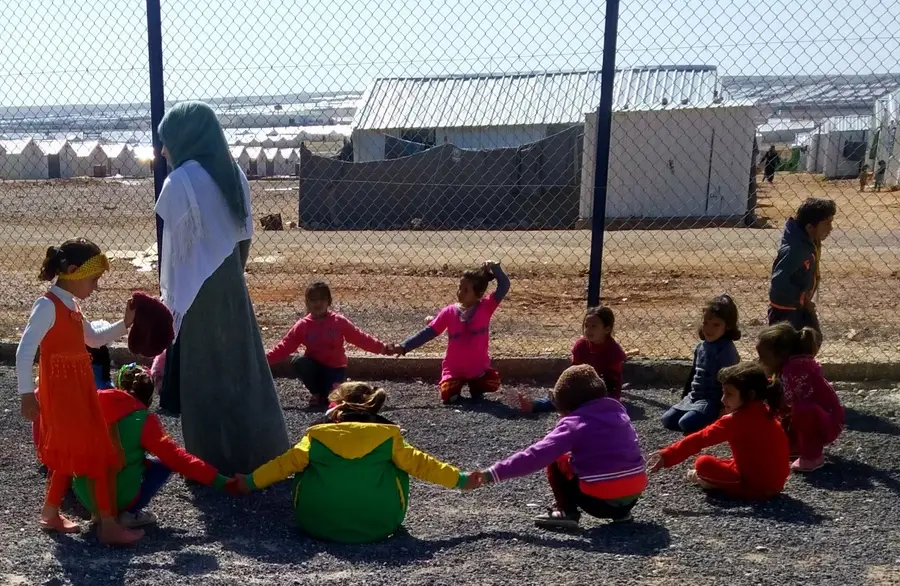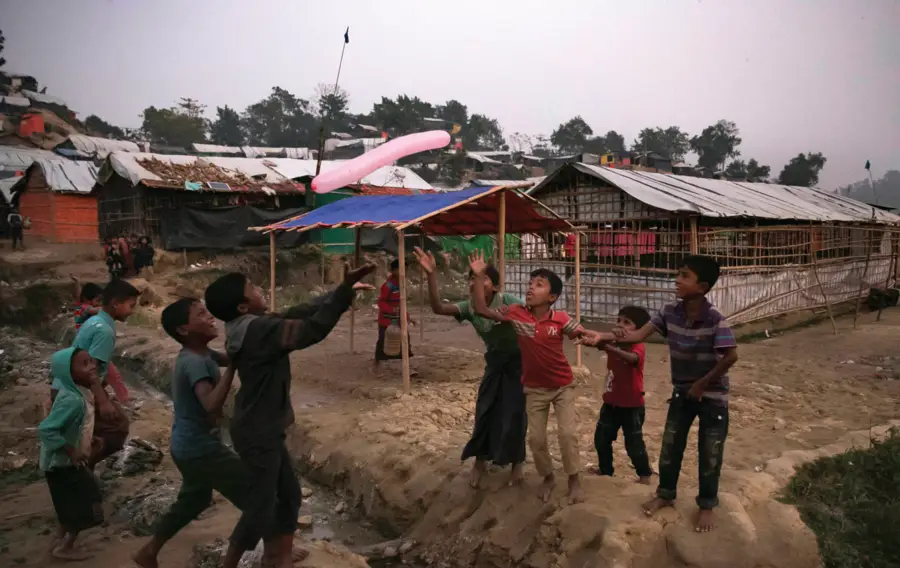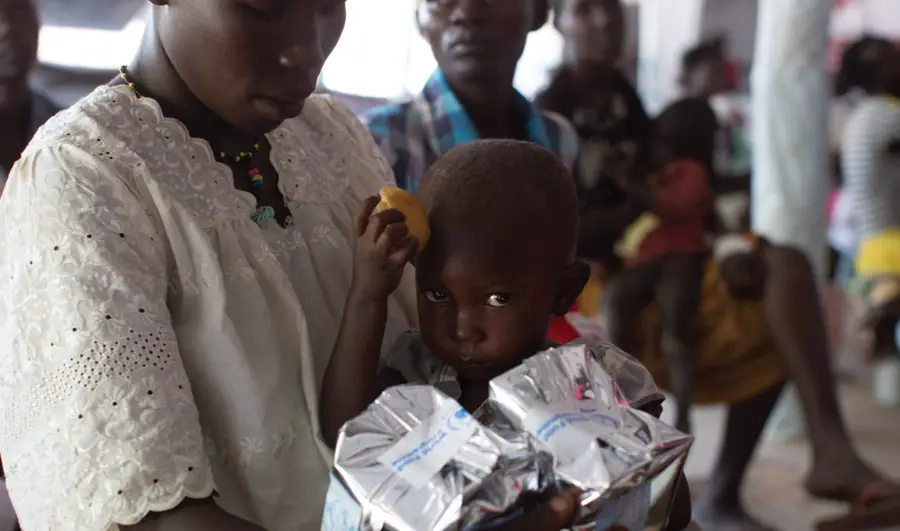
Providing comprehensive early childhood development (ECD) services to all young children aged 0-6 and their families is difficult under the best of circumstances. In times of crisis—be it a refugee emergency or a pandemic—the challenges are exacerbated. As the number of refugees globally reaches unprecedented levels, it is becoming even more urgent to ensure that displaced young children are supported sufficiently to achieve their developmental potential.
A series of case studies undertaken in late 2019 in Bangladesh, Jordan, and Uganda has shed light on the experience of young refugee children and their families. Commissioned by the Moving Minds Alliance, this qualitative research aimed to inform next steps for the coalition by identifying the common challenges and promising practices that have emerged from these national experiences.
Like many countries hosting refugees, Bangladesh, Jordan, and Uganda face economic and political hardships even in the absence of a humanitarian crisis. As a result, although ambitious ECD policies may be in place and visions of comprehensive ECD may be captured in national strategies, in reality the resources available to achieve these goals are extremely limited. With protracted crises in all three countries, and no sign of abatement in the global instability that causes displacement, it is likely that many young children today (and those born in the coming years) will be raised in families that are displaced and dependent upon the goodwill and strategic planning of host governments and humanitarian agencies.
As the COVID-19 pandemic has swept the globe, the situation of refugee families has become even more precarious. Governments throughout the world have closed work sites, childcare, schools, and public facilities and introduced social distancing policies to minimize physical contact that could spread infection. As a result, families have been confined to their homes and are experiencing limited social contact, potential economic difficulties, and a fear of illness. These stressors can create health and developmental disparities by increasing risk for food insecurity and disrupting family routines, with potentially negative impacts on children’s emotional health, sleep, learning, and development. The effects of social isolation on families with young children during a pandemic have not been well studied, but are likely to compound the obstacles facing refugees in particular.
Using the Nurturing Care Framework and the UNICEF ECD in Emergencies Integrated Programme Guide for conceptual framing, these case studies investigated the extent to which ECD polices and services are effectively organized, coordinated and delivered for refugees by host country governments and the role of international agencies in contributing to that process. Through document review, key informant interviews, site visits to ECD service providers and programs, and focus group discussions with refugee families, a research team from RTI synthesized a picture of the rapidly evolving landscape in each country at the end of 2019.

What are the common challenges?
The research found many common challenges across the three countries, beginning with the fragmentation of ECD services across sectors. As described in the Nurturing Care Framework, ECD is inherently cross-sectoral, yet all three countries lack a coordination entity, or focal point, to prevent silos and keep ECD on the agenda in the rush to respond to the refugee crisis. For example, in Jordan, each sectoral policy or strategy is focused on a specific sub-population, such as kindergarten for 4- and 5-year-olds (in the education sector) or immunizations for infants (in the health sector). In the absence of cross-sectoral coordination, each sector has a separate responsibility to the child that is limited in scope and time. This fragmentation, also in evidence in Bangladesh and Uganda, underpins a host of other common challenges.
One of these challenges is that refugees who live in camps are served by systems run by international agencies, separate and apart from national government systems. In the case of Bangladesh, the government does not permit its national ECD policy (widely regarded as a model in the region) to be applied to the Rohingya population in the country’s refugee response. This points to the need for comprehensive, inclusive national early childhood systems that can be easily adapted to include displaced populations should an emergency arise. If national ECD systems have preparedness plans in place, the needs of young children from affected communities can be met more effectively in a crisis. Preparedness plans for the ECD system can also guide humanitarian agencies on how to engage constructively and reduce the likelihood of parallel systems being created that do not contribute to long-term, government-led sustainability.
Another common challenge is the way that development and humanitarian aid are structured, funded, and delivered over time. Though urgent refugee emergencies often evolve into long-term situations, initial refugee response strategies rarely address, at the outset, how rapid response might transition into long-term programming to build government capacity and sustainability. Interviews from Nakivale Camp in Uganda suggest that, given the general state of the emergency there, only the survival—and not the development—of young children is considered a priority. Additional challenges include limited availability of monitoring or evaluation data and limited effectiveness of coordination working groups (read more here). Broadly speaking, the humanitarian response apparatus does not prioritize ECD or plan for sustainability.

What promising practices are happening?
There are numerous promising practices taking place that inspire optimism. One example is the use of child-friendly spaces as a platform for multi-sectoral ECD services. In Bangladesh and Uganda, child-friendly spaces (or “mother-baby areas”) include parenting education focused on all aspects of nurturing care. These centers support children’s social-emotional wellbeing and provide psychosocial support as well as other more specialized ECD services. In Uganda, a referral process established between nongovernmental organizations (NGOs) and the government-run case management system helps to identify and support children at risk; as one Ugandan key informant noted “caseworkers are the glue that holds together services for young children.”
In Bangladesh, community health workers from the refugee population are trained to raise awareness of health issues and resources among their refugee peers, which reduces stigma and increases the engagement of particularly vulnerable families. This has been successful in raising awareness among mothers as to where to access ECD services. Jordan’s Human Resource Development Strategy has a broad vision of ECD, and the country has been successful in implementing parts of that vision by empowering its already-strong sectors (e.g., education, health) to do more. Expanding the work of mainline ministries that already have significant capacity is proving an effective strategy for Jordan to make rapid progress on an ambitious ECD agenda.
What can we do?
1. Act fast
ECD is typically considered something that “can wait” in a crisis. This mindset must be reversed. Ensuring that ECD is included in humanitarian responses will require a large-scale, well-resourced strategic effort on the part of donors and advocates. A useful resource for this effort may be studying the tactics of the Education in Emergencies field, which successfully advocated for a seat at the table in emergency response.
2. Act together
Another important finding of this research is the lack of capacity building of government systems undertaken by international humanitarian response agencies during and following a crisis. This underscores the need for ECD donors and international actors to meaningfully partner with governments to build capacity for sustainable ECD systems, rather than support one-off programs or NGO initiatives. This investment in capacity building must be met by the commitment of governments to continue investing in and building strong ECD systems with preparedness plans to respond to emergency situations.
3. Act with intention
This research revealed that refugee families have not been adequately consulted about their needs. This implies a likely mismatch between the unique constellation of ECD needs in a given population and the design and provision of services. The objective of ECD services in a refugee setting should be to use data to align the type and intensity of the intervention as closely as possible to the needs at the population, community, and individual family levels. Genuine consultation with refugee families and improved use of timely, rigorous data would enable more effective allocation of scarce resources.
To read these reports please visit: Bangladesh, Jordan, Uganda and Cross-Country Analysis.
To learn more about how RTI and Moving Minds Alliance are working together to strengthen early childhood services for refugee populations, please visit movingmindsalliance.org.
The author wishes to acknowledge colleagues from the Moving Minds Alliance, Open Society Foundations, and RTI International for helpful comments on this article.

